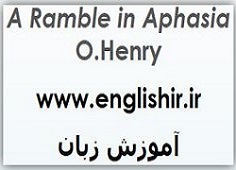داستاان کوتاه Cousin Tribulation's Story
تعداد بازديد : 1064

Cousin Tribulation's Story
by Louisa May Alcott
An illustration for the story Cousin Tribulation's Story by the author Louisa May Alcott
Painting by William Adolphe Bouguereau, 1880
Dear Merrys:--As a subject appropriate to the season, I want to tell you about a New Year's breakfast which I had when I was a little girl. What do you think it was? A slice of dry bread and an apple. This is how it happened, and it is a true story, every word.
As we came down to breakfast that morning, with very shiny faces and spandy clean aprons, we found father alone in the dining-room.
"Happy New Year, papa! Where is mother?" we cried.
"A little boy came begging and said they were starving at home, so your mother went to see and--ah, here she is."
As papa spoke, in came mamma, looking very cold, rather sad, and very much excited.
"Children, don't begin till you hear what I have to say," she cried; and we sat staring at her, with the breakfast untouched before us.
"Not far away from here, lies a poor woman with a little new-born baby. Six children are huddled into one bed to keep from freezing, for they have no fire. There is nothing to eat over there; and the oldest boy came here to tell me they were starving this bitter cold day. My little girls, will you give them your breakfast, as a New Year's gift?"
We sat silent a minute, and looked at the nice, hot porridge, creamy milk, and good bread and butter; for we were brought up like English children, and never drank tea or coffee, or ate anything but porridge for our breakfast.
"I wish we'd eaten it up," thought I, for I was rather a selfish child, and very hungry.
"I'm so glad you come before we began," said Nan, cheerfully.
"May I go and help carry it to the poor, little children?" asked Beth, who had the tenderest heart that ever beat under a pinafore.
"I can carry the lassy pot," said little May, proudly giving the thing she loved best.
"And I shall take all the porridge," I burst in, heartily ashamed of my first feeling.
"You shall put on your things and help me, and when we come back, we'll get something to eat," said mother, beginning to pile the bread and butter into a big basket.
We were soon ready, and the procession set out. First, papa, with a basket of wood on one arm and coal on the other; mamma next, with a bundle of warm things and the teapot; Nan and I carried a pail of hot porridge between us, and each a pitcher of milk; Beth brought some cold meat, May the "lassy pot," and her old hood and boots; and Betsey, the girl, brought up the rear with a bag of potatoes and some meal.
Fortunately it was early, and we went along back streets, so few people saw us, and no one laughed at the funny party.
What a poor, bare, miserable place it was, to be sure,--broken windows, no fire, ragged clothes, wailing baby, sick mother, and a pile of pale, hungry children cuddled under one quilt, trying to keep warm. How the big eyes stared and the blue lips smiled as we came in!
"Ah, mein Gott! it is the good angels that come to us!" cried the poor woman, with tears of joy.
"Funny angels, in woollen hoods and red mittens," said I; and they all laughed.
Then we fell to work, and in fifteen minutes, it really did seem as if fairies had been at work there. Papa made a splendid fire in the old fireplace and stopped up the broken window with his own hat and coat. Mamma set the shivering children round the fire, and wrapped the poor woman in warm things. Betsey and the rest of us spread the table, and fed the starving little ones.
"Das ist gute!" "Oh, nice!" "Der angel--Kinder!" cried the poor things as they ate and smiled and basked in the warm blaze. We had never been called "angel-children" before, and we thought it very charming, especially I who had often been told I was "a regular Sancho." What fun it was! Papa, with a towel for an apron, fed the smallest child; mamma dressed the poor little new-born baby as tenderly as if it had been her own. Betsey gave the mother gruel and tea, and comforted her with assurance of better days for all. Nan, Lu, Beth, and May flew about among the seven children, talking and laughing and trying to understand their funny, broken English. It was a very happy breakfast, though we didn't get any of it; and when we came away, leaving them all so comfortable, and promising to bring clothes and food by and by, I think there were not in all the hungry little girls who gave away their breakfast, and contented themselves with a bit of bread and an apple of New Year's day.













